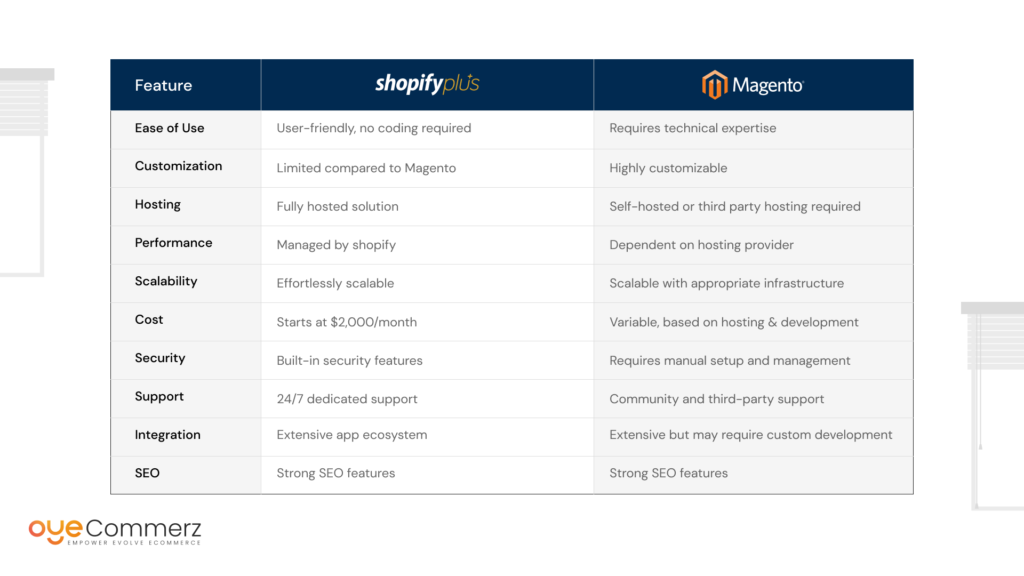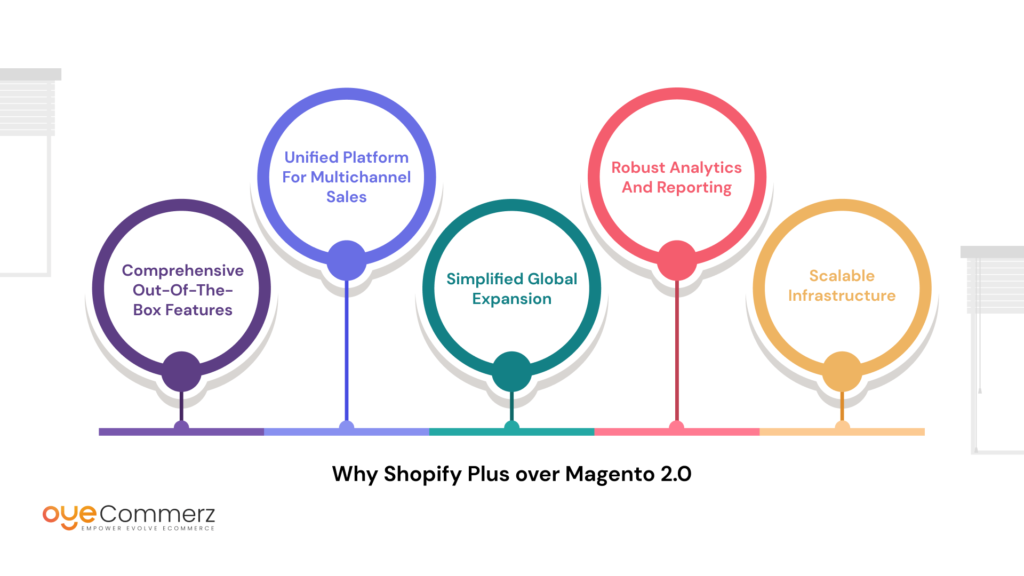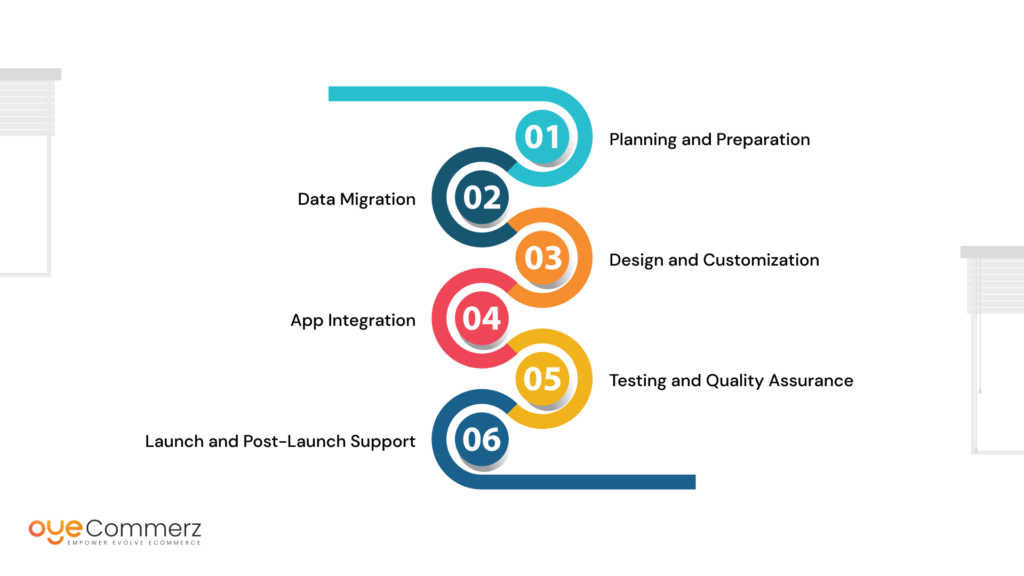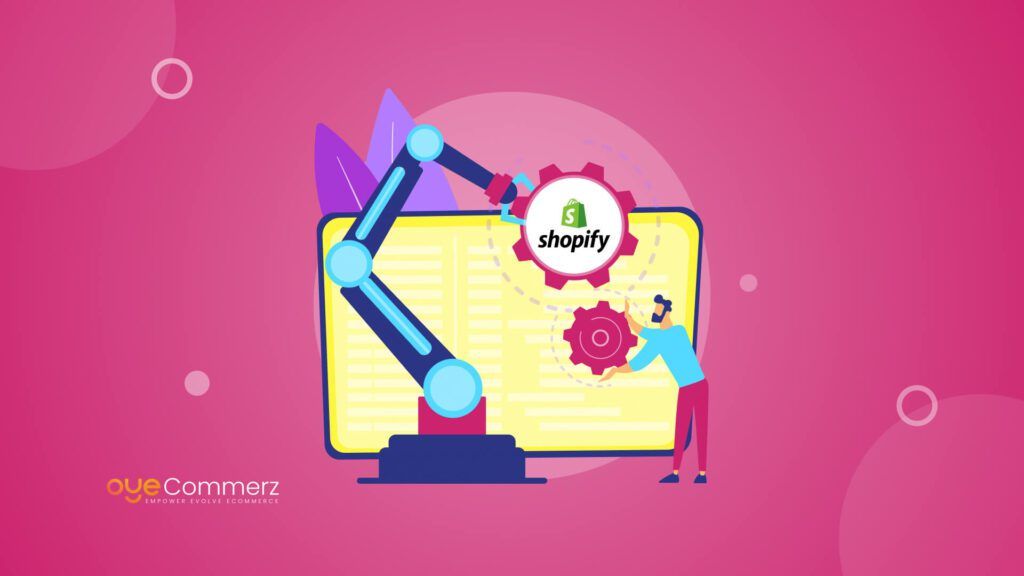While being immersed in the flow of a fast-evolving e-commerce environment, the selection of an appropriate platform for your online shop can draw the line between success and failure. With the plethora of options available, two platforms often come to the forefront: Shopify Plus and Magento 2. Both are behemoths in the e-commerce domain and target large business entities with powerful features and functions. To ensure a seamless transition, consider leveraging Shopify Plus consultants. This part will provide a narrowed-down comparison of Shopify Plus and Magento 2 and detailed information to assist in choosing the right B2B platform for your business.
Table of Contents
ToggleShopify Plus - Key Stats
Brands from various sectors have chosen Shopify Plus, the advanced version of the platform, as their preferred eCommerce solution. Retail leads the way at 17%, followed by fashion at 14%, with computer software making up more than a third collectively. Other top industries include:
- Wholesale
- Consumer goods
- Health, wellness, and fitness
- IT
- Internet
- Marketing
- Cosmetics
Shopify Plus & Magento 2 – A Quick Overview
Shopify Plus can be described as the commercial-grade version of Shopify catering for large volume sellers and comes with extra features and support. Developed to be very user-friendly, Shopify Plus offers a hosting service for those who want to avoid the complexities of managing servers and other IT facilities on their own in the process of enterprise’s growth.
Magento 2 is an open-source platform that is incredibly flexible and offers endless customization possibilities. Developed and owned by Adobe was created for businesses that need to have top-level control over the e-commerce infrastructure. It in summary offers a highly effective and easily-exportable solution but is slightly more complex to operate than the former solution.
Shopify Plus vs Magento 2: Key Differences
Ease of Use
- Shopify Plus: Shopify Plus as is well known by its users offers a very easy-to-navigate interface that allows controlling the online store’s creation and functioning. This app also has a drag-and-drop builder and an easy-to-use interface, which does not require refined skills to use a computer.
- Magento 2: Though there are more capabilities for customization, Magento 2 has more difficulties in terms of usability. Magento is fresh, but designing and managing your own Magento store is slightly more complex and sometimes involves developers.
Customization and Flexibility
- Shopify Plus: Being more flexible though, Shopify Plus is not as free-floating as one might expect it to be. As for design, it has several topics and applications, however, flexibility is not as vast as in Magento 2.
- Magento 2: In this aspect, Magento 2 is indeed above par as it provides complete freedom to experiment with the features. By having the source code, businesses are liberated to fine-tune the online store according to set needs, and thus, OpenCart is perfect for people who require particular, special solutions.
Hosting and Performance
- Shopify Plus: Shopify Plus is a fully hosted platform so the issues of server management and performance stability are not the issues of the merchant. It also enables organizations to shift their strategies towards growth, by sparing them the difficult task of performing technical upgrading.
- Magento 2: Magento 2 needs to be self-hosted or select third-party hosting services. This provides more control but also implies that servers’ performance, security, and updates are the businesses’ responsibilities.
Scalability
- Shopify Plus: Designed with flexibility and scalability in mind, Shopify Plus can support high traffic and large amounts of sales transactions which makes the platform ideal for fast-growing businesses.
- Magento 2: It can also handle simple and complicated and heavily trafficked stores. But, the effectiveness of the scaling comes with the technical knowledge and proper setting of the server.
Cost
- Shopify Plus: Shopify Plus is usually paid for on an ongoing, monthly basis and the basic cost is around $2,000 per month. This includes hosting, security, and support which provides for costs that are easy to forecast when making a budget.
- Magento 2: The prices for Magento 2 depend on which hosting, development, or maintenance requirements you have. The free open-source software is going to be cheaper but the cost is going to be amassed since one is going to require technical ability and two, infrastructure.

Why Many Businesses Prefer Shopify Plus Over Magento 2?

In general, during choosing the appropriate e-commerce platform, the question comes down to which of the solutions is more suitable for achieving business objectives. Thus, even though both Shopify Plus and Magento 2 oblige to be metered for their polymorphic functionality, Plus has some peculiarities.
Comprehensive Out-of-the-Box Features
You need to understand that Shopify Plus comes with a large number of integrations already pre-installed which can be beneficial for many large enterprises. This decreases the necessity for other extensions or the development of native applications in contrast to Magento 2 which has to be heavily adjusted to provide a similar level of essential functions.
Unified Platform for Multichannel Sales
Shopify Plus shines in the combination of sales channels which are e-commerce, multi-channel, online marketplace, social media, and physical stores. Such strategies used approach the company to the sale of its products are advantageous in the sense that they help to maintain brand images more so inventory across such channels. Despite this Magento 2 is a capable e-commerce platform that sometimes requires more complex integration to match such multiple-channel functionality.
Simplified Global Expansion
Partnering with Shopify Plus is advantageous when venturing into other countries because it comes with a built-in translation of multiple languages and currencies. This enables the business to easily manage to shift the appearance of their stores to suit different markets without necessarily making major infrastructural changes. Magento 2 does support internationalization but usually, the process is more complex and demands more fine-tuning.
Robust Analytics and Reporting
Shopify Plus has additional features for setting up advanced analytics, providing more detailed tracking of sales figures, customers, and store performance. These tools assist business organizations in making informed decisions about their operations and overall marketing strategies. While Magento 2 includes analytics, it often requires extensions or third-party applications to match the comprehensive capabilities found in Shopify Plus.
Scalable Infrastructure
Shopify Plus is designed to be highly scalable and can easily deal with large numbers of visitors, or sales volumes or density as seen during the Black Friday or Cyber Monday sales holidays. This scalability is facilitated by Shopify, so business operations do not have to worry about server performance issues while at the same time being scalable as needed. The scalability of Magento 2 depends on so much on the hosting circumstances and this needs a lot of planning and control to achieve the best out of your site during the occurrence of the peak traffic.
How to Migrate Your Store to Shopify Plus?

Migrating to Shopify Plus involves several key steps to ensure a smooth transition:
Planning and Preparation
First of all, perform a comprehensive review of the existing store, where it is necessary to determine which data and functions are to be transferred. Develop a migration plan which includes the step-by-step process and time frame and the achievements at every level.
Data Migration
Take a migration tool that transfers products, customers, orders, etc., to the new Shopify Plus store, or hire a Shopify Plus Expert to do it. Discourage the entry of wrong data during this process to improve accuracy and data consistency.
Design and Customization
Shopify Plus has default settings for design and functionality, but you can change them according to your brand and business. Select a theme and modify it if needed to provide no hiccups to your users.
App Integration
To scale your business with a custom Shopify app, it’s important to list out any third-party apps or plugins that are needed for your store and install them. The Shopify app store offers a wide range of apps that can enhance site capabilities, making it easier to find the right tools for your specific needs
Testing and Quality Assurance
Take your time to conduct tests on the new store so that you can be sure that it is working as it is supposed to. Carry out tests to confirm every aspect of data and features of the project and that all the integrations are functional.
Launch and Post-Launch Support
When testing is done, go ahead and start your Shopify Plus store. It is recommended to give your team some training and also help them have some support you need to solve the arising problems after the launching.
Transform Your E-Commerce Journey with OyeCommerz
Boost your online presence, streamline operations, and enhance user experiences with our robust solutions. At OyeCommerz, we employ strategic methods to transform your store and drive success. Our comprehensive training and support ensure you excel with Shopify Plus and achieve sustainable profitability.
Partner with OyeCommerz to unlock exceptional eCommerce opportunities and expand your business. Contact us today to begin your journey toward enduring success!
Contact to Migrate your Site to Shopify Now
Conclusion
Shopify Plus is an excellent solution for differentiated businesses that don’t need a highly complicated platform for managing an enterprise-level store. It is particularly suited for scaling enterprise eCommerce because it is a cloud-based solution with a dedicated account manager to ensure smooth deployment. With Shopify Plus, there isn’t a need for extensive custom configurations, as much of the setup is handled by the Shopify team, making costs predictable and suitable for easy-to-deploy applications. In contrast, Magento 2 is a flexible and highly customizable platform that requires a company to implement and manage a custom-built platform for e-commerce businesses.




